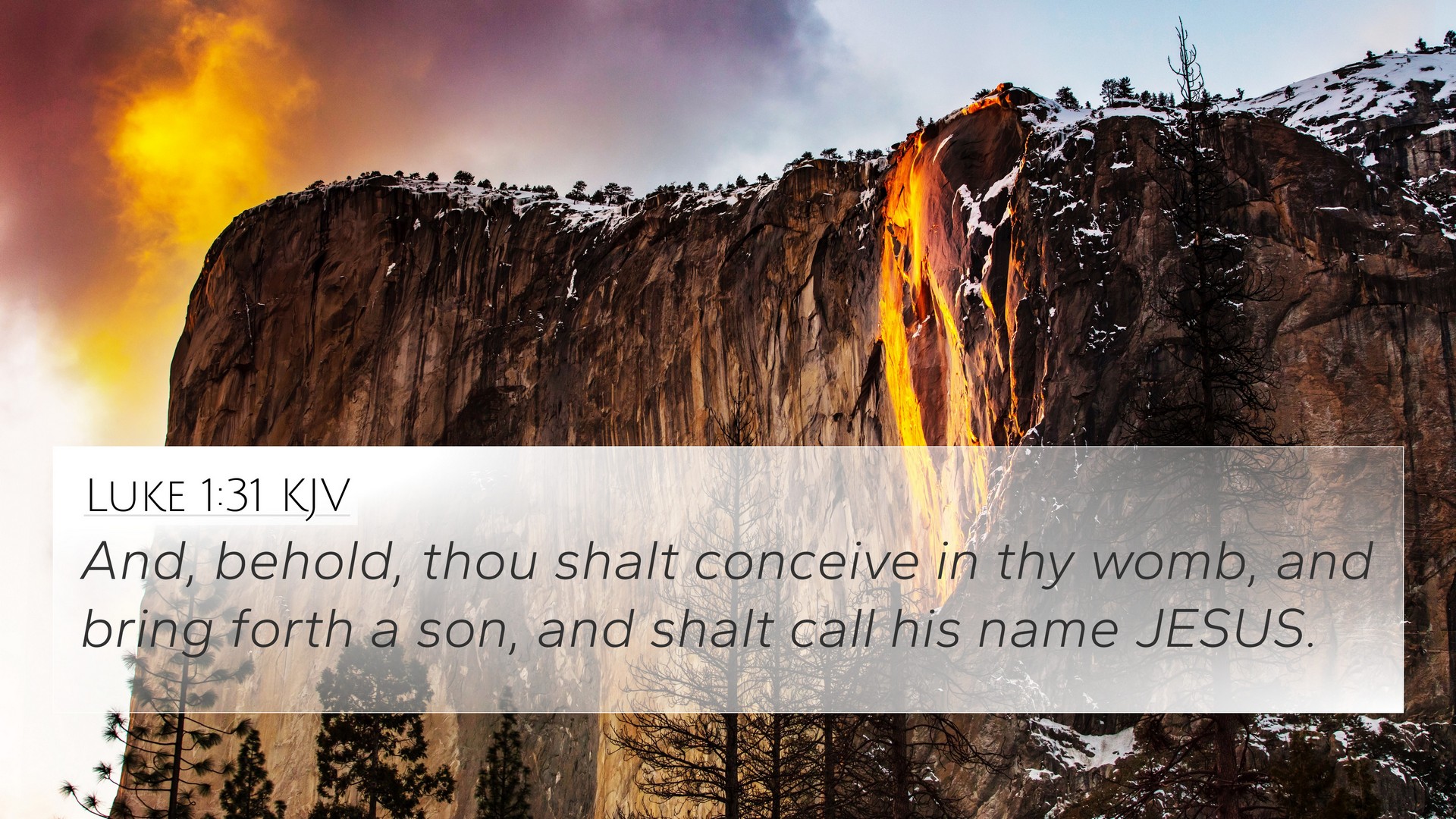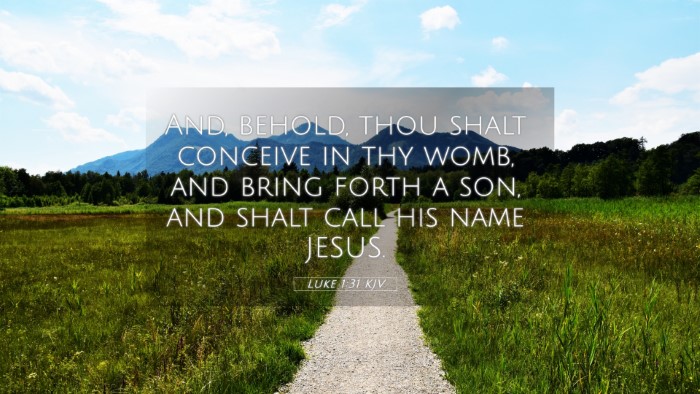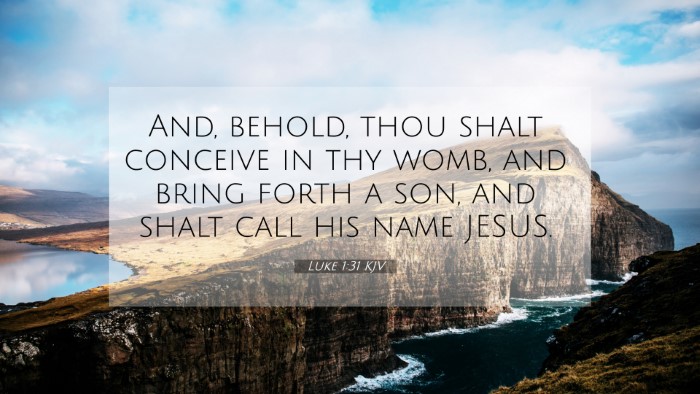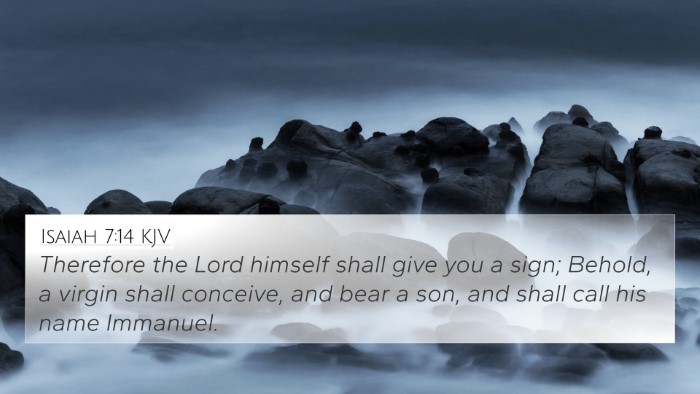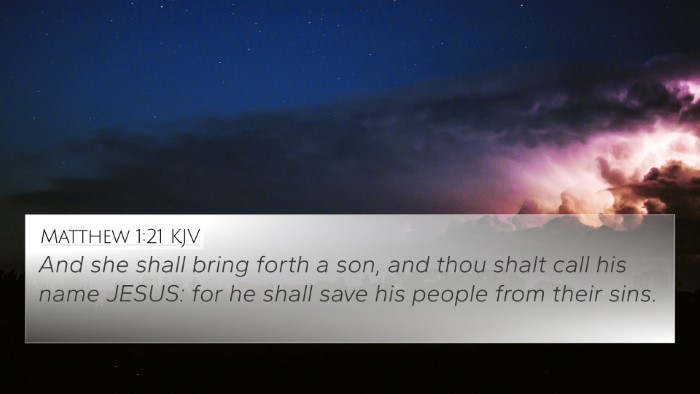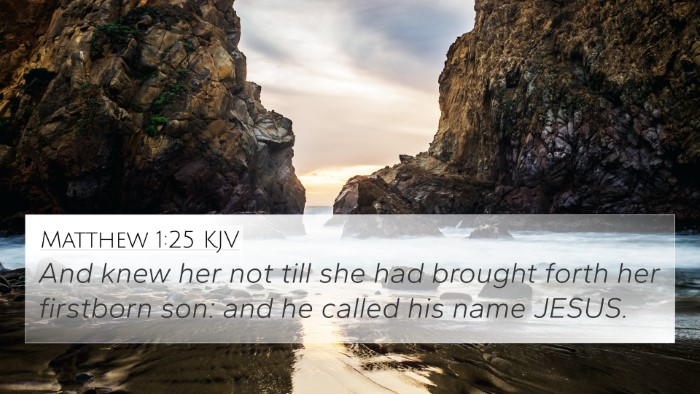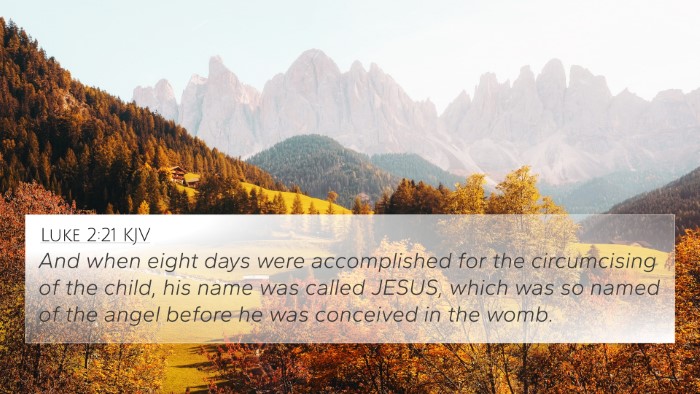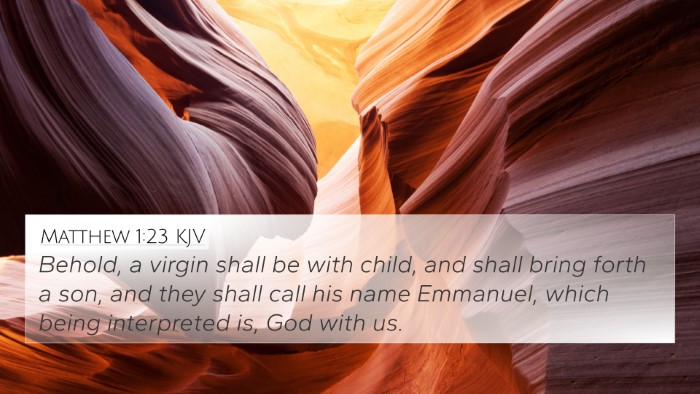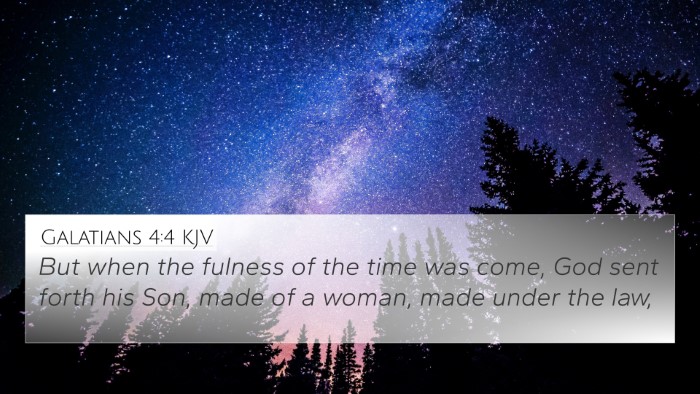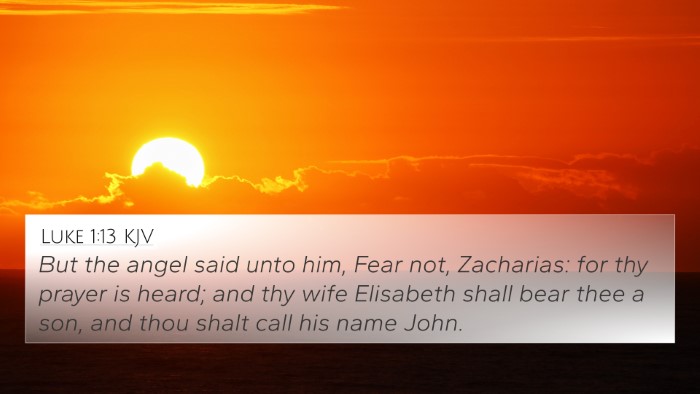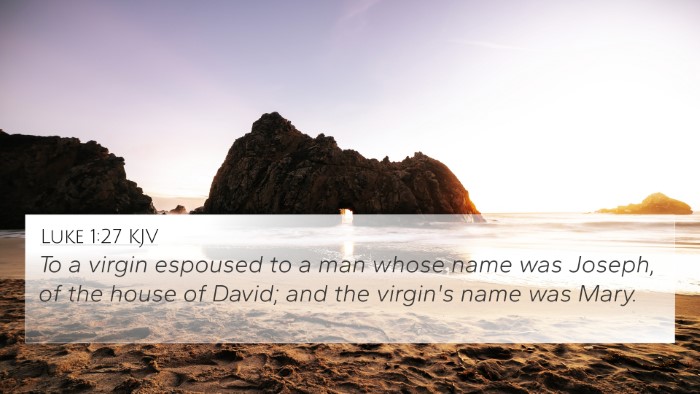Luke 1:31 - Summary and Interpretation
The verse Luke 1:31 states: "And behold, you will conceive in your womb and bring forth a Son, and shall call His name JESUS." This proclamation to Mary by the angel Gabriel is monumental, heralding the miraculous conception of Jesus Christ, the Savior.
Context and Significance
This announcement occurs in the New Testament's Gospel of Luke, which emphasizes the compassionate and personal nature of God’s plan for salvation. Mary’s acceptance of this message is pivotal in the narrative of God becoming human. Commentators like Matthew Henry and Adam Clarke emphasize the divinity and beauty of the incarnation, highlighting God's grace and mercy towards humanity.
Commentary Insights
- Matthew Henry: Henry notes that the announcement signifies the fulfillment of divine prophecy and emphasizes the importance of the name "Jesus," which means "Savior." He points out that this moment is foundational for understanding the nature of Christ as both God and man.
- Albert Barnes: Barnes elaborates on the importance of this message to Mary, underlining her role and the significance of her faith. He discusses the implications of her acceptance, linking it to the broader narrative of redemption in the scriptures.
- Adam Clarke: Clarke stresses the angel's declaration as a turning point in history. He connects this event with various Old Testament prophecies, asserting that Mary’s conception represents the fulfillment of God’s promise to provide a Messiah.
Bible Verse Cross-References
This verse relates closely to several other passages in both the Old and New Testaments. The following references provide a deeper understanding:
- Isaiah 7:14: "Therefore the Lord Himself will give you a sign: Behold, the virgin shall conceive and bear a Son, and shall call His name Immanuel." This prophecy foretells the virgin birth, establishing a clear connection with Luke 1:31.
- Matthew 1:21: "And she will bring forth a Son, and you shall call His name JESUS, for He will save His people from their sins." This verse parallels Luke's mention of the name Jesus, underscoring the reason for His coming.
- John 1:14: "And the Word became flesh and dwelt among us..." This elaborates on the incarnation aspect of Luke 1:31, connecting the pre-existence of Christ with His human birth.
- Galatians 4:4: "But when the fullness of the time had come, God sent forth His Son, born of a woman, born under the law..." This verse provides the theological underpinning of Mary's role and the timing of Christ's coming.
- Luke 2:11: "For there is born to you this day in the city of David a Savior, who is Christ the Lord." This announcement by the angels captures the joy and fulfillment of Mary's conception in Luke 1:31.
- Matthew 2:1-2: The Magi's visit emphasizes the recognition of Jesus as the King and Savior foretold in the prophecies.
- Revelation 12:5: "She bore a male Child who was to rule all nations with a rod of iron..." This verse acknowledges the future reign of Jesus, indicating His divine purpose as delineated in Luke 1:31.
Understanding Biblical Connections
The connections between Bible verses, especially regarding the birth of Jesus, reveal the cohesive narrative of scripture. By studying cross-references, one can identify themes of prophecy, fulfillment, and divine design.
This verse encourages the faithful to engage deeply with scripture through tools like a bible concordance or a bible cross-reference guide, facilitating the discovery of links between passages and enriching one’s understanding of God’s word.
Conclusion
Luke 1:31 serves as a cornerstone for Christian theology, illuminating key concepts such as the incarnation, purpose of Christ, and fulfillment of Old Testament prophecy. By exploring related scriptures and their connections, believers can deepen their insight into the overarching narrative of redemption woven throughout the Bible.
